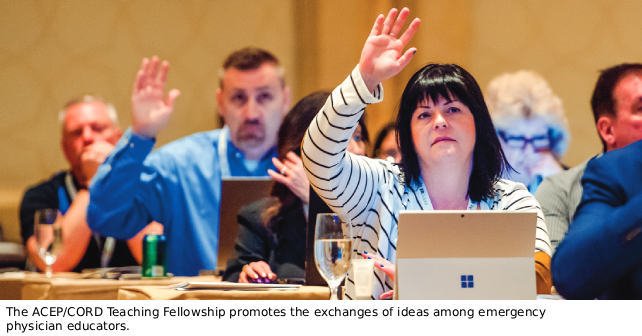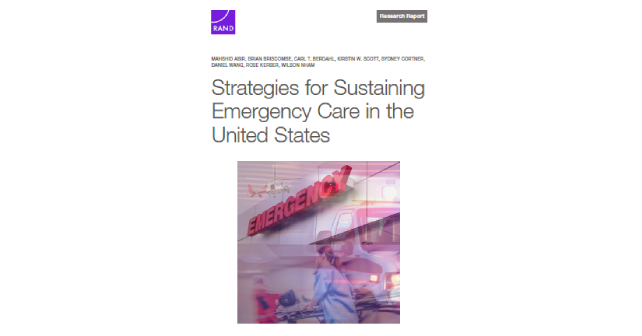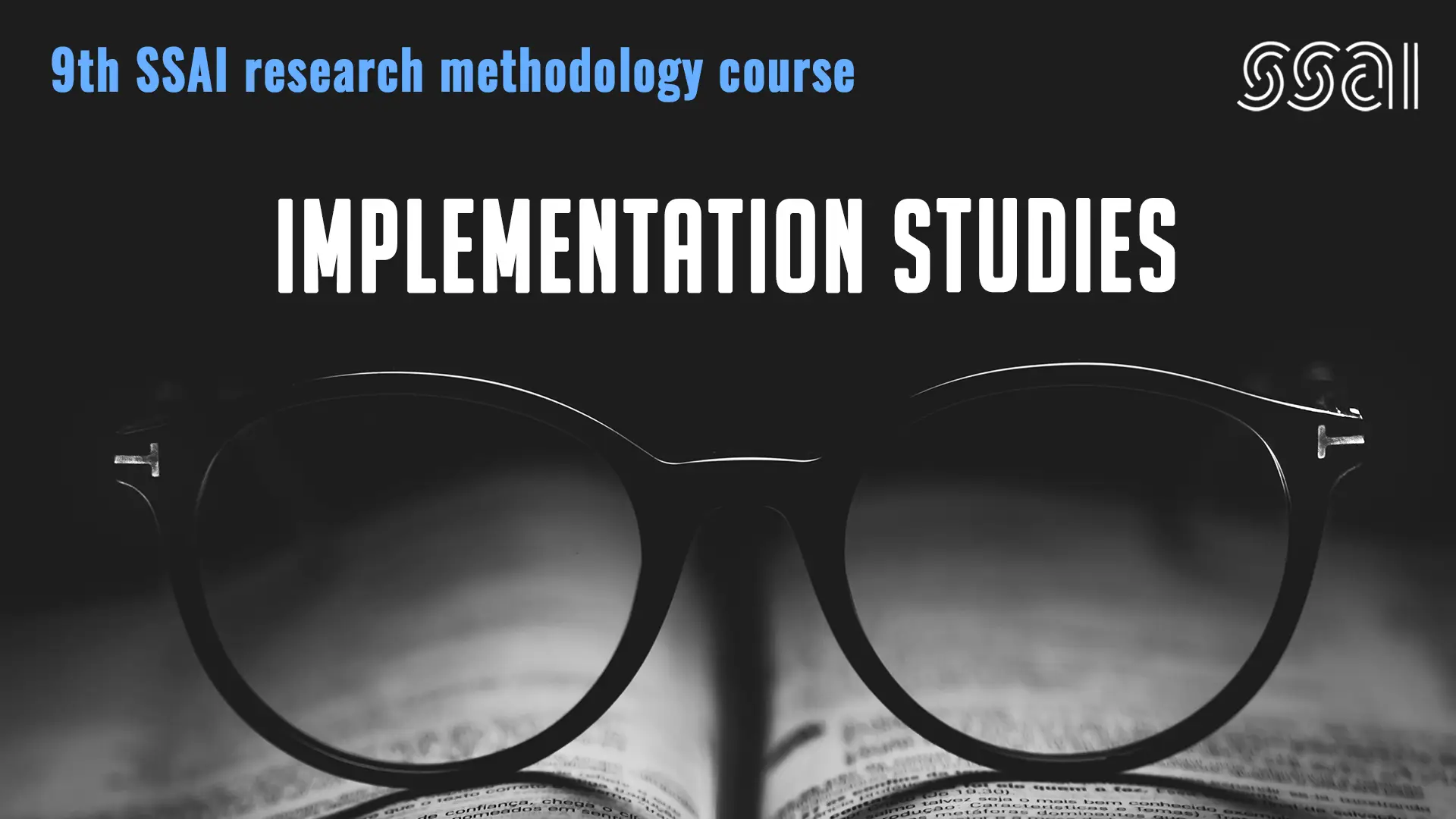
For 35 years, the ACEP/Council of Emergency Medicine Residency Directors (CORD) Teaching Fellowship (TF) has been the launchpad for emergency physicians who teach, lead, and inspire. What began as a pioneering effort to train the first generation of emergency medicine educators has grown into a nationally recognized program that shapes the trajectory of academic careers.
With hundreds of alumni now serving as program directors, department chairs, national leaders, and innovators in medical education, the Fellowship’s legacy is woven into the fabric of emergency medicine.
“The most valuable thing I learned at the TF was an organized approach to developing curricula, and it got me started with an interest in learning how to be a better public speaker,” said Amal Mattu, MD, vice chair of academic affairs, University of Maryland in Baltimore, TF class of 1997. The TF was started in 1989 by Michael Gallery, who holds a PhD in human performance improvement, and was, at the time, the ACEP director of policy and executive director of the Emergency Medicine Foundation. He identified a gap in the needs of emergency medicine educators at the time. As an Advanced Cardiovascular Life Support and Advanced Trauma Life Support national educator, he noticed that physicians are often not taught how to teach. At the time, physicians primarily learned through observation and, often, through receipt of poorly delivered or punitive feedback. He created the TF in collaboration with emergency physicians at the University of Texas Southwestern Medical Center in Dallas to help teach physicians to be effective educators. It started as a group of 20-25 physicians who met for two weeks in the fall and two weeks in the spring, completing a project between the phases.
The TF’s format has evolved over the years to meet the changing needs of academic medicine and learners. The program continues to be highly interactive and high yield. Participants attend two five-day in-person phases and complete a year-long education-focused project in between. They engage in small group learning, give presentations to each other, and practice giving and receiving feedback, under the guidance of seasoned faculty educators. It is the training program where many prominent educators got their start in education.
The two in-person phases are now integrated into ACEP’s Accelerate conference, providing participants with even more opportunities for networking, mentorship, and professional development. This integration allows TF participants to engage with a broader community of educators and leaders and gives them more time between the phases to complete their projects.
“The most valuable part of the TF was the community. I left with a national network of educators, collaborators, and — most meaningfully — lifelong friends,” said Shayne Gue, program director, BayCare Health System in Tampa, Fla., TF class of 2022.
During the TF, the first phase focuses on foundational skills critical for every educator, such as curriculum design, effective speaking, slide design, bedside teaching, and feedback. During Phase 1, each participant delivers a “microteaching” presentation within a small group led by a faculty member and receives feedback. During Phase 2, the focus is on leadership and more advanced topics, such as communication, keys to career success, negotiations, mentorship, and program leadership. In Phase 2, each participant presents their projects. Participants also leave with a strong professional identity as educators. The emphasis on interactive learning, reflection, and feedback equips fellows with knowledge, but it also helps spark the curiosity that supports lifelong development as academic physicians.
“The network it helped me build was invaluable for the support, for those challenging moments as an educational leader, while also reinforcing key skills to be the best educator I could be for my trainees,” said Matthew Stull, MD, director of emergency critical care, University of South Carolina in Columbia, S.C., TF class of 2015.
A strong sense of community forms among TF participants. They can learn together, share their work, collaborate on shared projects, and occasionally provide medical care. During a recent teaching fellowship, a group of participants leaving the fellowship encountered a traveler at the airport who went into cardiac arrest in front of them. The group immediately performed CPR and resuscitated him before the paramedics arrived. TF alumni also often continue to stay in touch, meet up at conferences, or support each other in many ways.
As we celebrate the 35th anniversary of the ACEP/CORD TF, we also celebrate the community it has fostered: a national network of educators dedicated to enhancing the way we teach, lead, and ultimately care for patients. The program’s longevity and the success of its alumni are a testament to the power of investment in faculty development.
The next cohort of the TF will begin in January 2026 at Accelerate. If you are an early- or mid-career educator looking to grow your skills, your network, and your impact, consider joining this remarkable legacy of learners and leaders.
The TF is currently directed by Christina Shenvi, MD, PhD, MBA, FACEP, and Jason Wagner, MD, FACEP, and it owes a great debt of thanks to all of the current and prior speakers, participants, and directors, including the most recent other directors, Susan Promes, MD, MBA, FACEP, and Mary-Jo Wagner, MD, FACEP.
—————————————–
 Dr. Shenvi is a professor of Emergency Medicine at UNC-Chapel Hill and is the co-director of the ACEP-CORD Teaching Fellowship.
Dr. Shenvi is a professor of Emergency Medicine at UNC-Chapel Hill and is the co-director of the ACEP-CORD Teaching Fellowship.









